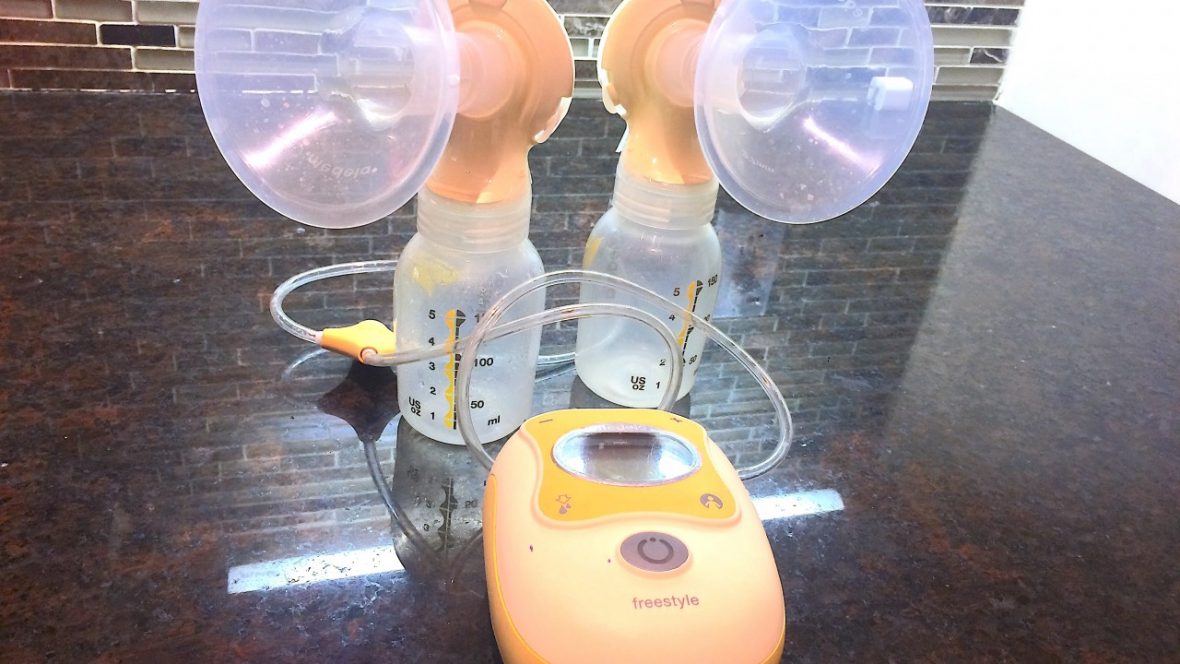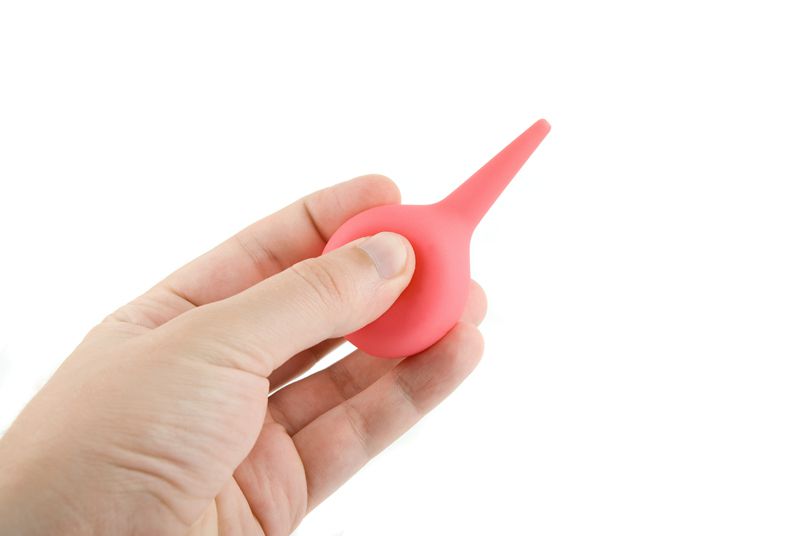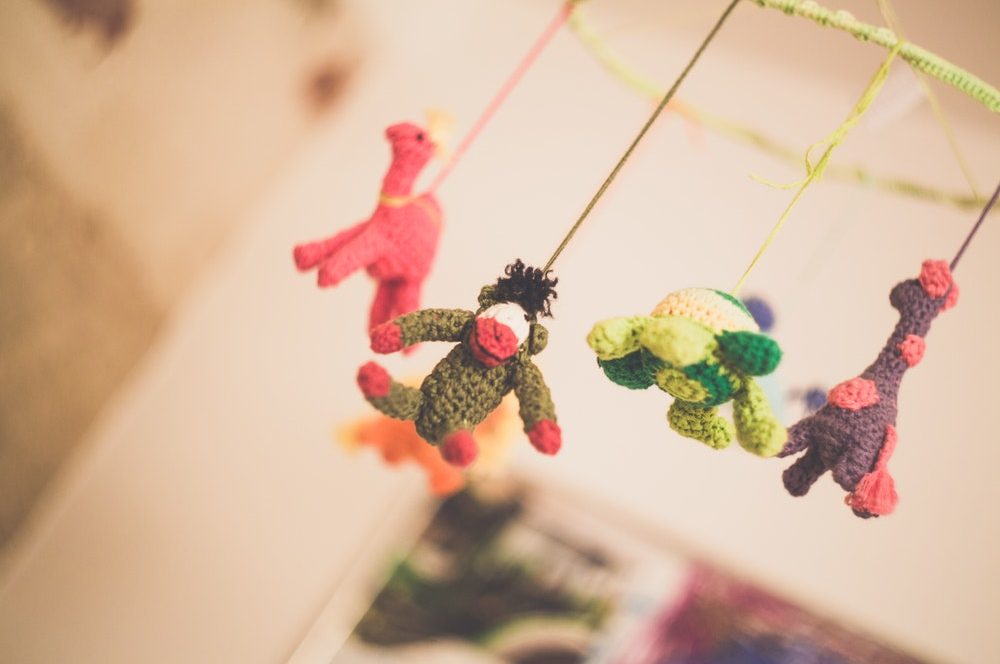Every new mom has a laundry list of stuff she supposedly can’t do without or must have, courtesy of her girlfriends, doctor, mother in law, or parenting book. Some of it is great, some of it is useless. Here are some things that every new mom must have, and they’re not all gadgets or gimmicks.
1. Baby supplies. No, this isn’t a “duh.” Be prepared, as much as possible. This doesn’t mean have a perfectly color-coordinated nursery and a designer layette: practical stuff. Always try to make sure you have the bathing, diapering and feeding basics at hand. If not, you’ll get stressed out, and everyone suffers because of stressed-out moms. Other items you may have forgotten: baby nail trimmers or files, a bulb syringe (for sucking mucus out), and a baby-specific laundry detergent (sensitive skin, remember?).
2. A bassinet or co-sleeper for your bedroom. Newborns seldom want to sleep in a crib: it’s big, cold, and unfamiliar. A bassinet, or (for me), better yet, a co-sleeper attached to the bed, is much more comforting. You and the baby will usually sleep better, being close enough to soothe and feed the baby right away, rather than having to haul yourself up, traipse to the nursery, and do it there. Believe me, you can get them in the crib later, but in those first days at home, be sweet to yourself and to the baby and ease into independence. You two were together for nine months, it shouldn’t end abruptly.
3. Nursing shields/pads. If you breast feed, you’ll find your chest often becomes a sprinkler system set on automatic at the sound of a crying baby (anyone’s, not just your own), an emotional moment on TV or a sad song, or getting sexually aroused. If you have to be away from the baby during feeding time, your milk will let down on schedule, baby or not. It’s mortifying to suddenly look down and realize that the nice man at the store is staring in horror at the growing twin stains on your shirt. So, keep some of these soft, disposable pads in your purse,diaper bag, glove compartment, wherever. Keep one set in your bra at all times, it extends the time you can wear a bra (because who has time for laundry three times a day, and who wants to buy a dozen nursing bras so you can change several times a day??), and prevents embarrassment. If you choose not to breast-feed, you’ll need these for at least a couple of weeks, until your milk dries up. Sometimes it stops immediately,while other women find they take weeks or months to stop lactating spontaneously.
4. Breast pump, milk bottles, storage bag. If you’re nursing, be prepared: you won’t always be able to be around, or maybe you shouldn’t. After all, Daddy had a part in conception, shouldn’t be get some of the job of feeding you child,too? Oh, and you deserve a nap and shower, too. Eventually, many of us go back to work, sometimes far too soon for comfort. So, you need a pump, and it’s best to start early, while your milk supply is plentiful and still a bit erratic, because that way you can have extra milk on hand. Ask around for advice on what model is best. Much of it depends on how big your breasts and nipples are, and how sensitive you are. Also, battery, manually-operated or electric versions are available. Comparison shop for the best deal and features.
5. Blankets. You can never have too many blankets, seriously. I mean the kind they give you at the hospital: lint-free, soft and warm yet lightweight, and practical. A blanket can be rolled into a bolster, used as a spit-up cloth in a pinch, used to swaddle a fussy baby, used as a towel if you have none clean, and be a great toy for a baby learning about peek-a-boo.
6. Equipment. Here is where gadgets come in. A vibrating seat, swing, play enclosure, baby monitor, etc. are all very helpful but not necessary. They’re mainly for ease and comfort, and if you can afford them, get them.
7. Baby sling or other carrier. No, I’m no earth mother, but I found that carrying my babies in a sling (nothing high-tech, a simple cloth sling was all I used) was immensely helpful and freeing. Not only was the baby close to me to be able to nurse and to soothe them when necessary, my motion comforted and rocked them and made them happy and sleepy. Also, the sling freed up my hands to do other things, like laundry, take care of other kids, clean house, whatever. Just don’t cook with the baby, ok? Some people prefer a backpack or front carrier with fancy straps and buckles and frames, but go with whatever you and your baby do best with.
8. Pillows. Pillows are awesome, to prop you up while nursing, to put between your knees while sleeping, to prop baby up against on the bed while you’re not holding her, etc. Just always supervise a propped-up baby. If you can afford them, there are special baby-oriented pillows, especially for nursing support, which are great–but a regular old pillow does in a pinch, too, with some positioning.
9. Diaper Disposer. If you use disposable diapers, do yourself a favor and invest in a diaper genie or other disposal system. Sure, your newborn’s poo is innocent and relatively odor-free…but that changes, all too soon. And oh my, how horrible it is to walk into someone’s house and be assaulted by the smell of a full, open diaper pail. Gross!
10. Toys. Sure, we could be talking about baby toys here, but honestly, babies don’t care for toys until they’re a couple of months old. No, this is toys for YOU. Make sure you have an iPod, iPad, or other device well-stocked with things to do, especially things you can do with one hand. Why? Because you will be sitting still frequently, whether you’re nursing or bottle-feeding. Yes, spend time gazing adoringly at your precious child, but it’s not a mortal sin to entertain yourself with a game, music or eBook. Catch up on your correspondence and reading, as long as you don’t let it eat up all your feeding/bonding time.
There are a million other things a new mom could use or need, but nothing will ever fully prepare you for the wonder, exhaustion and joy of new motherhood. You’re not a failure if you don’t have the latest and most expensive products–the basics will do the job. Just enjoy your early days with your baby and be as prepared as possible. It’s a roller coaster ride, but worth every exhilarating and terrifying moment.











